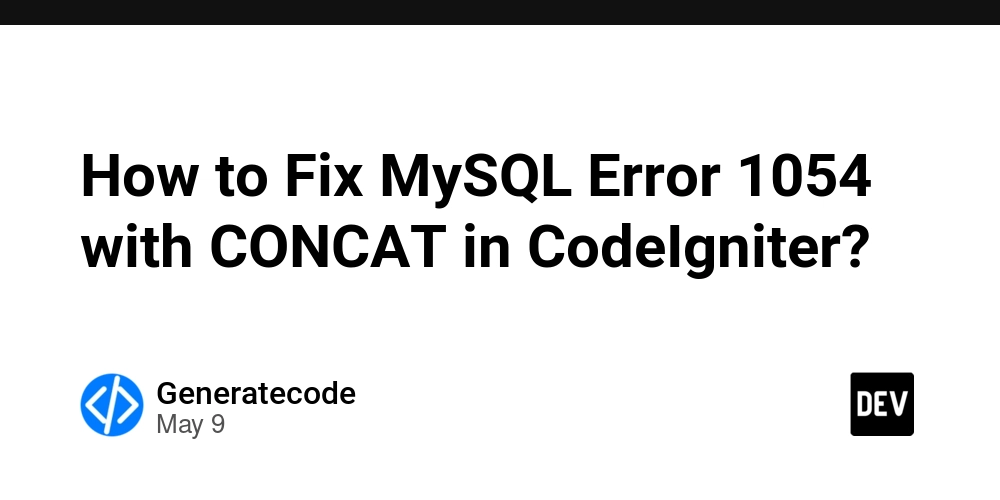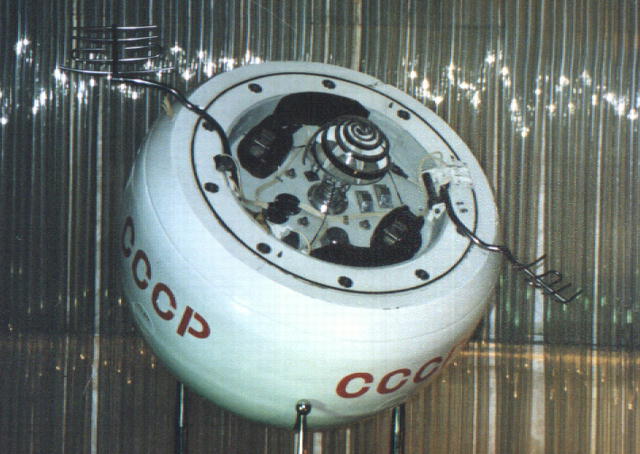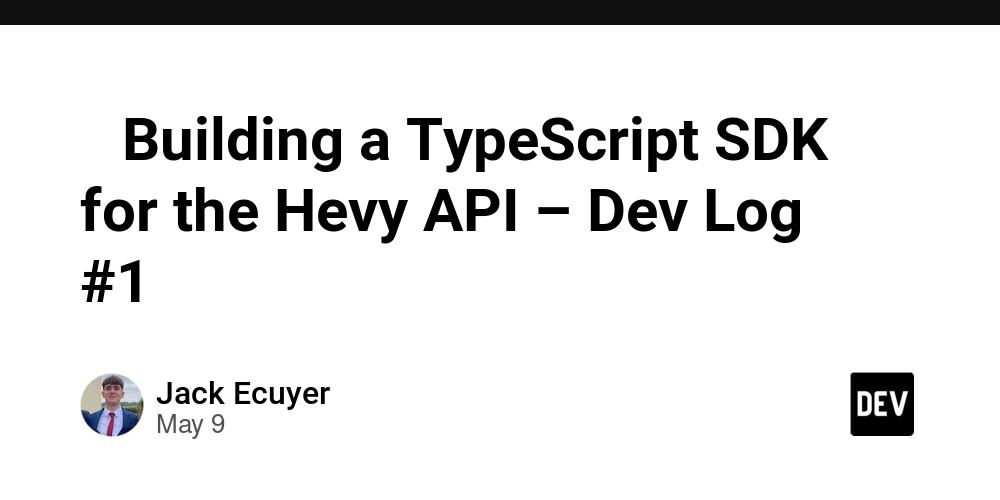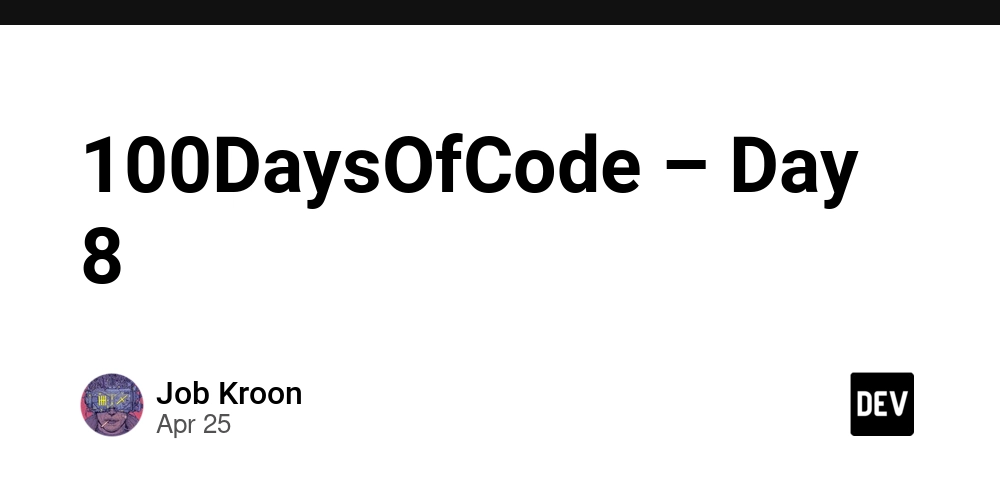How to Fix MySQL Error 1054 with CONCAT in CodeIgniter?
When working with CodeIgniter's Active Record, you may encounter issues when trying to use MySQL functions like CONCAT() in your queries. Specifically, you might run into the MySQL error "Error Number: 1054 - Unknown column 'name' in 'where clause'" when you attempt to match a column that you've created in the SELECT clause. This error can be confusing because it seems logical to use an alias created in the SELECT statement in the WHERE clause. Understanding the MySQL Error 1054 The reason for this error is straightforward: the MySQL query engine processes the WHERE clause before the SELECT clause. Therefore, any aliases created via CONCAT() in the SELECT statement cannot be directly referenced in the WHERE clause. In your case, you're attempting to filter results based on an alias 'name' that hasn't yet been created in the order of SQL execution. Correcting Your Query To solve this issue, you can modify your query to perform the concatenation within the WHERE clause instead of relying on an alias. Here’s how you can do it: Step 1: Modify the Query to Include CONCAT in the WHERE Clause You should integrate the CONCAT function directly into the WHERE clause. Here's an updated version of your query: $this->db->select("CONCAT(user_firstname, '.', user_surname) AS name", FALSE); $this->db->select('user_id, user_telephone, user_email'); $this->db->from('users'); $this->db->where("CONCAT(user_firstname, '.', user_surname) LIKE '%" . $this->db->escape_like_str($term) . "%'"); Step 2: Secure Input with Escape Notice that I am using $this->db->escape_like_str($term) to safely handle any special characters in the $term variable, which helps prevent SQL injection attacks. Alternative Solution: Using a Raw Query If you still prefer to use a raw SQL query instead of Active Record, you can do it like this: $query = $this->db->query("SELECT user_id, user_telephone, user_email, CONCAT(user_firstname, '.', user_surname) AS name FROM users WHERE CONCAT(user_firstname, '.', user_surname) LIKE ?", array('%' . $term . '%')); return $query->result(); Conclusion In summary, to address the MySQL error you encountered when using CONCAT() in CodeIgniter's Active Record, include the CONCAT function in the WHERE clause. This change allows you to create a matching pattern directly without relying on the alias. Additionally, consider switching to raw queries if necessary for more complex cases, while ensuring to secure your input to guard against SQL injection. Happy coding! Frequently Asked Questions (FAQ) Can I use SELECT aliases in the WHERE clause? No, MySQL processes the WHERE clause before any aliases from the SELECT clause are recognized. How can I secure input in my queries? You can use $this->db->escape() or $this->db->escape_like_str() methods to secure user input effectively. Is there a performance difference between Active Record and raw queries? Generally, Active Record is preferred for simplicity and readability, while raw queries might offer better performance for complex situations, but this varies based on the use case.

When working with CodeIgniter's Active Record, you may encounter issues when trying to use MySQL functions like CONCAT() in your queries. Specifically, you might run into the MySQL error "Error Number: 1054 - Unknown column 'name' in 'where clause'" when you attempt to match a column that you've created in the SELECT clause. This error can be confusing because it seems logical to use an alias created in the SELECT statement in the WHERE clause.
Understanding the MySQL Error 1054
The reason for this error is straightforward: the MySQL query engine processes the WHERE clause before the SELECT clause. Therefore, any aliases created via CONCAT() in the SELECT statement cannot be directly referenced in the WHERE clause. In your case, you're attempting to filter results based on an alias 'name' that hasn't yet been created in the order of SQL execution.
Correcting Your Query
To solve this issue, you can modify your query to perform the concatenation within the WHERE clause instead of relying on an alias. Here’s how you can do it:
Step 1: Modify the Query to Include CONCAT in the WHERE Clause
You should integrate the CONCAT function directly into the WHERE clause. Here's an updated version of your query:
$this->db->select("CONCAT(user_firstname, '.', user_surname) AS name", FALSE);
$this->db->select('user_id, user_telephone, user_email');
$this->db->from('users');
$this->db->where("CONCAT(user_firstname, '.', user_surname) LIKE '%" . $this->db->escape_like_str($term) . "%'");
Step 2: Secure Input with Escape
Notice that I am using $this->db->escape_like_str($term) to safely handle any special characters in the $term variable, which helps prevent SQL injection attacks.
Alternative Solution: Using a Raw Query
If you still prefer to use a raw SQL query instead of Active Record, you can do it like this:
$query = $this->db->query("SELECT user_id, user_telephone, user_email, CONCAT(user_firstname, '.', user_surname) AS name FROM users WHERE CONCAT(user_firstname, '.', user_surname) LIKE ?", array('%' . $term . '%'));
return $query->result();
Conclusion
In summary, to address the MySQL error you encountered when using CONCAT() in CodeIgniter's Active Record, include the CONCAT function in the WHERE clause. This change allows you to create a matching pattern directly without relying on the alias. Additionally, consider switching to raw queries if necessary for more complex cases, while ensuring to secure your input to guard against SQL injection. Happy coding!
Frequently Asked Questions (FAQ)
Can I use SELECT aliases in the WHERE clause?
No, MySQL processes the WHERE clause before any aliases from the SELECT clause are recognized.
How can I secure input in my queries?
You can use $this->db->escape() or $this->db->escape_like_str() methods to secure user input effectively.
Is there a performance difference between Active Record and raw queries?
Generally, Active Record is preferred for simplicity and readability, while raw queries might offer better performance for complex situations, but this varies based on the use case.









































































![Apple Foldable iPhone to Feature New Display Tech, 19% Thinner Panel [Rumor]](https://www.iclarified.com/images/news/97271/97271/97271-640.jpg)
![Apple Shares New Mother's Day Ad: 'A Gift for Mom' [Video]](https://www.iclarified.com/images/news/97267/97267/97267-640.jpg)
![Apple Developing New Chips for Smart Glasses, Macs, AI Servers [Report]](https://www.iclarified.com/images/news/97269/97269/97269-640.jpg)
![Apple Shares Official Trailer for 'Stick' Starring Owen Wilson [Video]](https://www.iclarified.com/images/news/97264/97264/97264-640.jpg)










































































































 Evolved as a Predominant Framework for Ransomware Attacks.webp?#)



_Aleksey_Funtap_Alamy.jpg?width=1280&auto=webp&quality=80&disable=upscale#)
_Sergey_Tarasov_Alamy.jpg?width=1280&auto=webp&quality=80&disable=upscale#)

























































































































![[The AI Show Episode 146]: Rise of “AI-First” Companies, AI Job Disruption, GPT-4o Update Gets Rolled Back, How Big Consulting Firms Use AI, and Meta AI App](https://www.marketingaiinstitute.com/hubfs/ep%20146%20cover.png)

































































































































































































-Mafia-The-Old-Country---The-Initiation-Trailer-00-00-54.png?width=1920&height=1920&fit=bounds&quality=70&format=jpg&auto=webp#)

































































